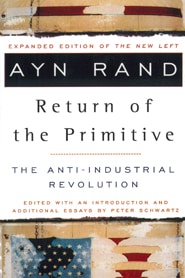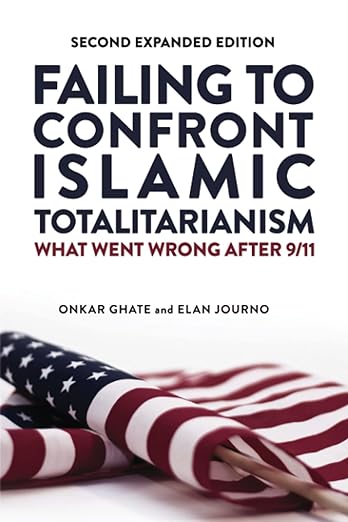Ayn Rand Discussing “Envy”

Today, we live in the Age of Envy.
“Envy” is not the emotion I have in mind, but it is the clearest manifestation of an emotion that has remained nameless; it is the only element of a complex emotional sum that men have permitted themselves to identify.
Envy is regarded by most people as a petty, superficial emotion and, therefore, it serves as a semihuman cover for so inhuman an emotion that those who feel it seldom dare admit it even to themselves. . . . That emotion is: hatred of the good for being the good.
This hatred is not resentment against some prescribed view of the good with which one does not agree. . . . Hatred of the good for being the good means hatred of that which one regards as good by one’s own (conscious or subconscious) judgment. It means hatred of a person for possessing a value or virtue one regards as desirable.
If a child wants to get good grades in school, but is unable or unwilling to achieve them and begins to hate the children who do, that is hatred of the good. If a man regards intelligence as a value, but is troubled by self-doubt and begins to hate the men he judges to be intelligent, that is hatred of the good.
The nature of the particular values a man chooses to hold is not the primary factor in this issue (although irrational values may contribute a great deal to the formation of that emotion). The primary factor and distinguishing characteristic is an emotional mechanism set in reverse: a response of hatred, not toward human vices, but toward human virtues.
To be exact, the emotional mechanism is not set in reverse, but is set one way: its exponents do not experience love for evil men; their emotional range is limited to hatred or indifference. It is impossible to experience love, which is a response to values, when one’s automatized response to values is hatred.
“THE AGE OF ENVY”
Return of the Primitive: The Anti-Industrial Revolution

Consider the full meaning of this attitude. Values are that which one acts to gain and/or keep. Values are a necessity of man’s survival, and wider: of any living organism’s survival. Life is a process of self-sustaining and self-generated action, and the successful pursuit of values is a precondition of remaining alive. Since nature does not provide man with an automatic knowledge of the code of values he requires, there are differences in the codes which men accept and the goals they pursue. But consider the abstraction “value,” apart from the particular content of any given code, and ask yourself: What is the nature of a creature in which the sight of a value arouses hatred and the desire to destroy? In the most profound sense of the term, such a creature is a killer, not a physical, but a metaphysical one — it is not an enemy of your values, but of all values, it is an enemy of anything that enables men to survive, it is an enemy of life as such and of everything living.
“THE AGE OF ENVY”
Return of the Primitive: The Anti-Industrial Revolution

ESSAY COLLECTION
Return of the Primitive
304 Pages | Available in eBook format | Published in 1999
About the Book
- Confronted by an important idea, event or movement, Ayn Rand always sought to identify its causes and effects: What gave rise to this and to what will it lead?
- The essays in Return of the Primitive collect Rand’s observations of the ’60s student movement, asking, among other questions: What is the meaning of the campus protests? What ideas led to the shift from the Old Left to the New? Is there a connection between the Progressive educational system (preschool through college) and this generation of students?
- Rand also looks critically at the nascent environmentalist movement, which she saw as fomenting an “anti-industrial revolution,” and analyzes what she sees as the dominant emotional leitmotif of this era, which she calls “the Age of Envy.”
- The essays by Peter Schwartz confirm that the timeless lessons of Rand’s analyses — especially those concerning environmentalism, multiculturalism and feminism — have been borne out by developments through the ’80s and ’90s. Her insights are as relevant today as they were four decades ago.

FOREIGN POLICY
What Justice Demands
271 Pages | Available in Paperback & Kindle format | Published in 2018
About the Book
- What is at the core of the Israeli-Palestinian conflict? What does justice demand of us in this conflict? This book clarifies an intimidatingly complex issue—and upends conventional views about America’s stake in it.
- In this book, Elan Journo explains the essential nature of the conflict, and what has fueled it for so long. What justice demands, he shows, is that we evaluate both adversaries—and America's approach to the conflict—according to a universal moral ideal: individual liberty. From that secular moral framework, the book analyzes the conflict, examines major Palestinian grievances and Israel's character as a nation, and explains what's at stake for everyone who values human life, freedom, and progress.
- What Justice Demands shows us why America should be strongly supportive of freedom and freedom-seekers—but, in this conflict and across the Middle East, it hasn't been, much to our detriment.

FOREIGN POLICY
Failing to Confront Islamic Totalitarianism
330 Pages | Available in Paperback & Kindle format | Published in 2021
About the Book
- September 11 was the worst attack on American soil since Pearl Harbor. Yet even though the forces of Islamic totalitarianism are materially far weaker than the enemies we faced in World War II, and even though America’s military strength is unrivaled, the Afghanistan and Iraq wars became quagmires. U.S. combat forces are set to withdraw from both places, without victory in either. Jihadists have not only carried out murderous attacks around the world, they have weakened the West by battering a pillar of free societies: the secular principle of freedom of speech.
- What went wrong after 9/11?
- The fundamental problem lies in the irrational philosophic ideas that permeate—and subvert—American foreign policy. The United States is a military superpower, but it lacks the principles, self-confidence and moral certainty needed to defend itself and its ideals. Our political and intellectual leaders evade the nature of Islamic totalitarianism. And their inability to uphold and defend so vital a right as the freedom of speech has further inspired the jihadists.
- For twenty years after 9/11, the Ayn Rand Institute predicted that prevailing ideas about morality would undercut our foreign policy and cripple us in action. Those predictions have proven correct.
- This second edition has been substantially expanded. Added to the op-eds, interviews and essays analyzing American policy from George W. Bush to Barack Obama are writings published between 2016 and 2021. Commentary spanning four quite different presidential administrations underscores the profound impact of philosophic ideas in foreign policy, regardless of who sits in the Oval Office.
- Can we end the Islamist menace and secure our right to life, liberty and the pursuit of happiness on earth? Yes—easily—if we adopt the right philosophic principles to guide our foreign policy.